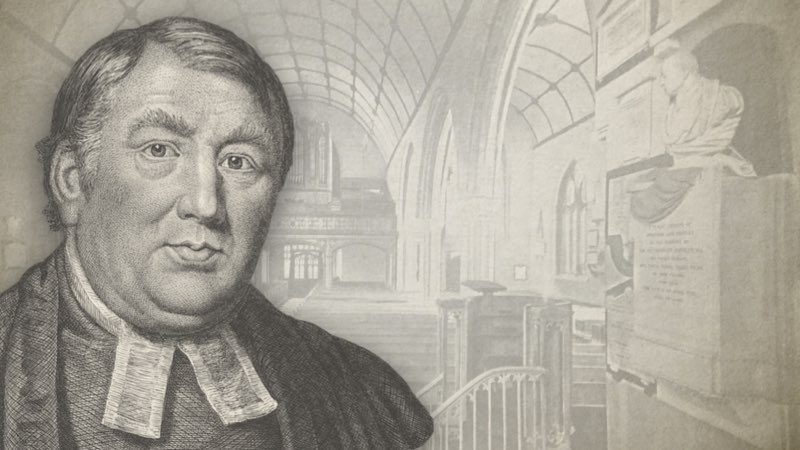
June 13—Morning Devotion
“The master is come, and calleth for thee,”—John 11:28
My soul, mark how gracious the Lord is to his people in the special and distinguishing tokens of his grace. Jesus doth not barely send his gospel to the church, or house, or family; but he speaketh by the soft, but powerful whispers of his love, to the individual soul. “To thee is the word of his salvation sent.” Hence the soul who feels the sovereignty of his word in the constraining influences with which it is accompanied, cries out, I shall never forget thy word, for by it thou hast quickened me. But besides the calls of his grace in his house of prayer, in how many Ways, and by what a variety of methods, is the Lord Jesus calling upon his people. My soul, I hope that thou art always upon the look out, and art getting to thy watch-tower to hear what the Lord thy God hath to say to thee, by his word, by his providences, his chastisements in love, and in all the gracious manifestations of his favour. Behold, he saith, “I stand at the door and knock.” So Jesus calleth, and so let my soul hear. Now, Lord, thou art calling me by thy word and providence in a way of grace: by and by I shall hear thy voice in the hour of death and judgment. And who shall say how very powerful, sweet, and gracious, that call is, when Jesus cometh to take his people home to himself, that where he is, there they may be also? ‘I hear my Master’s voice,’ said a highly favoured servant of God in the moment of his departure. Perhaps a loud voice, a glorious distinguishable voice, to him that is called, when no stander by is at all conscious of the sound. Hence another said, when he was dying, ‘I shall change my place, but not my company.’ Jesus, master, in that hour be it my happiness to say, “let me hear thy voice, let me see thy countenance: for sweet is thy voice, and thy countenance is comely.”
Robert Hawker (1753-1827) was an Anglican (High-Calvinist) preacher who served as Vicar of Charles Church, Plymouth. John Hazelton wrote of him:
“The prominent features…in Robert Hawker's testimony…was the Person of Christ….Dr. Hawker delighted to speak of his Lord as "My most glorious Christ.” What anxious heart but finds at times in the perusal of the doctor's writings a measure of relief, a softening, and a mellowing? an almost imperceptible yet secret and constraining power in leading out of self and off from the misery and bondage of the flesh into a contemplation of the Person and preciousness of Christ as "the chiefest among ten thousand and the altogether lovely." Christ and Him crucified was emphatically the burden of his song and the keynote of his ministry. He preached his last sermon in Charles Church on March 18th, 1827, and on April 6th he died, after being six years curate and forty-three years vicar of the parish. On the last day of his life he repeated a part of Ephesians 1, from the 6th to the 12th verses, and as he proceeded he enlarged on the verses, but dwelt more fully on these words: "To the praise of His glory Who first trusted in Christ." He paused and asked, "Who first trusted in Christ?" And then made this answer: "It was God the Father Who first trusted in Christ."
Robert Hawker on the Biblical Covenants (Complete)
Robert Hawker's Poor Man's Morning Portions




